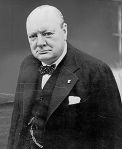This is the verse that is used to try to shame Christians for discerning poor behavior, ethics, morals, and values: the “judge not lest ye be judged” verse. Using only Matt 7:1 is entirely incomplete. This verse is not speaking to not judging at all — it is speaking to not judging unfairly or any other cheap and selfish way. Read the rest of the story…
In my last blog Judging part 1 , I submitted a definition of “SIN”. If we are going to judge, I think we need a definition of what to judge will be based on.
Matt 7:2-5 “For in the same way you judge others, you will be judged [What is the criteria we use to judge others? Is it from our own perspective? Is it to “hammer” others? Is it to justify our discernment of non-Christians?], and with the measure you use, it will be measured to you [if we use extremes or exaggerations or other dishonorable means, the judgment that we receive will reflect that, but judging with fairness and compassion will also reflect any judgment of us]. Why do you look at the speck of sawdust in your brother’s eye [point out his sins, “minor” in Jesus’ example here] and pay no attention to the plank in your own eye [our own sins, magnified by our selective blindness]? How can you say to your brother, ‘Let me take the speck out of your eye,’ [tell him of his “minor” sins] when all the time there is a plank in your own eye [that there are greater or the same sins in our own lives which we do nothing about or think we are above]? You hypocrite* [pointing out the sins of others while thinking of ourselves as above that particular sin], first take the plank out of your own eye [recognize our own sinful behaviors, confess that to God, and live the Truth and Light by His Word], and then you will see clearly [be in a better position] to remove the speck from your brother’s eye [to judge and to help him out of his bondage to sin].”
*hypocrite refers to an Actor.
John 7:24 Judge not according to the appearance, but judge righteous judgment.
I do not understand WHY we, as Christians, hold non-Christians to the same Biblical Standard as Christians. It is similar to holding a fish to the same standards as an eagle.
In 1Cor. 6:2-3 Jesus authorizes us to judge. Judge we must else we could not discern good from bad, proper from improper, righteousness from evil. But judge behavior, not the individual; the deed not the doer; the choice not the chooser. The individual/doer/chooser is accountable for his/her deed/choice, but judge the deed/choice in your judgment.
And to continue, Matt 7:6 says. “Do not give dogs what is sacred; do not throw your pearls to pigs. If you do, they may trample them under their feet, and then turn and tear you to pieces.” How are we going to know as undesirable the behaviors of “dogs” and “pigs” if we do not judge?
Let me explain.
Refer to John 8:1 – 11. The woman taken in adultery.
Jesus was not arguing with the judgment. Jesus was not arguing the law or the woman’s guilt. Jesus was arguing with our right to execute the woman. Once all the men had dropped their stones Jesus confronted the woman and asked her if any of the men were still there to condemn her. When she answered “No man, Lord”, Jesus told her that neither did He – He forgave her of her sin.
He did not excuse the sin of adultery/prostitution; he forgave her of it.
All behavior and thought that is sinful before forgiveness is still sinful after forgiveness. Not only was Jesus not afraid to call a sin a sin, He was not afraid to call a sinner a sinner. He even reminded her of the sin of adultery/prostitution by telling her “Go and sin no more.”
So what is the Point?
Jesus did not argue the act of judging the chosen behavior of the adulteress/prostitute. Some have told us Christians should be more tolerant. “Tolerance” has become quite probably the most one-sided word in the English language. Christians as well as non-Christians expect the “other” to use more tolerance in their dealings with them.
It is Christians who practice tolerance who pull people away from the CHRIST of Christianity. Practicing the Christian faith and what is expected of it is being very intolerant … of sin … even our own by His Word, not yours or mine, by embracing the sinner but not embracing the sin; by helping the sinner out of bondage to the sin by loving him/her enough to tell the Truth.
On Judgment Day, Jesus will send the unforgiven sinner into the fiery pits of Hell in a heartbeat.
Now that is intolerance. Of sin. And Rightly so.
He further will not excuse any single sinful act or behavior. It is worth repeating in the example of the adulteress/prostitute; Jesus forgave her sin but did not excuse it. Adultery/prostitution is just as sinful now, after Jesus forgave the woman of it, as it was before He forgave her. He will forgive us all our sins — past, present, future — if we are humble enough to ask believing. But He will not excuse any sinful behavior. All behavior that is sinful before forgiveness is still sinful after.
Clearly, the Bible teaches the importance of judging between morality and immorality in order to serve and honor God. To ignore this fact is to ignore all of the scriptures just presented, and also many other scriptures throughout the Bible.
The Bible also tells us how we are to pass judgment on one another. God has given us a complete set of rules, and as long as we do not exceed these limitations, there is no sin in judging someone else unless we are hypocrites, and are guilty of the sinful act of Self-Righteousness. (Judging from our own righteousness instead of the righteousness of God)




